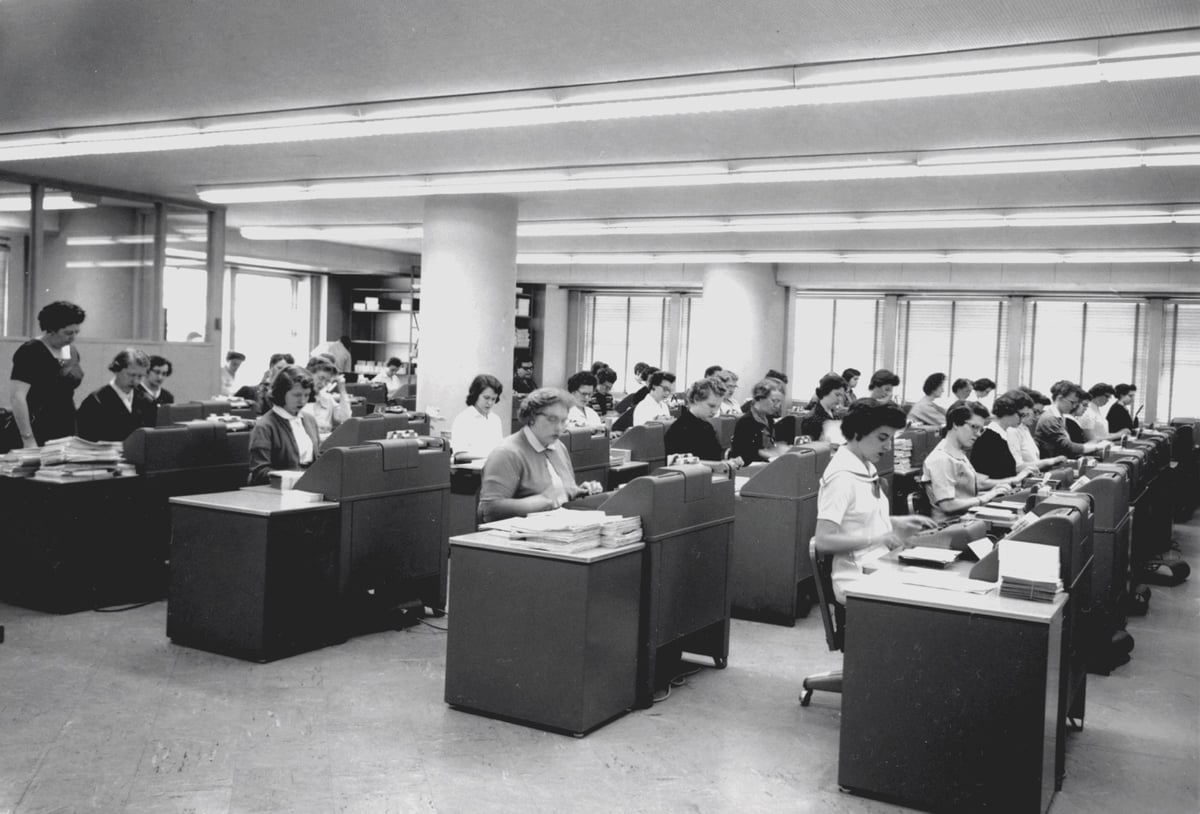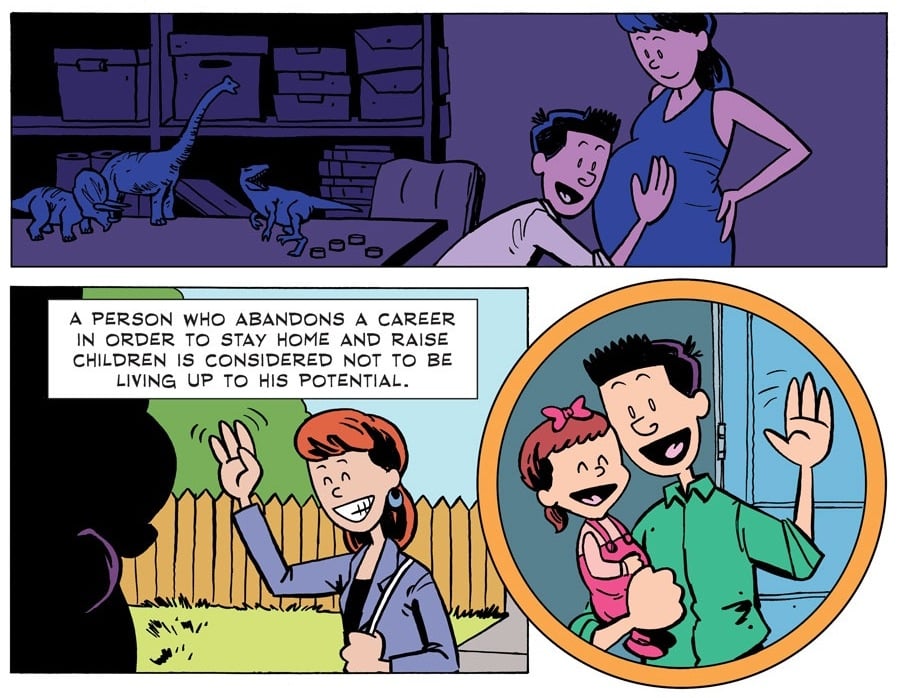
Quite interesting and well designed retrospective on the History of Work at Atlassian, looking at every decade starting in the 50s; what office work looked like, technological innovations, and how the future of work was imagined during each decade.
In a 1964 interview with the BBC, science fiction writer Arthur C. Clarke nailed almost all of his predictions for the year 2014. He predicted the use of wireless communications, making us “in instant contact with each other, wherever we may be,” as well as robotic surgery, only missing his prediction that workers would no longer commute to their offices and travel “only for pleasure.”
When office work and life-long hopes of employment started losing some of it’s potential and appeal:
Employees increasingly had doubts about the value of long-term company loyalty and started putting their own needs and interests above their employers’. “Office Space” debuted in 1999 and humorously brought this idea to life, satirizing the banal, everyday work of office denizens and their incompetent, overbearing bosses.

Bill Watterson famously quit cartooning after ten years during which his Calvin and Hobbes was a critical and commercial success you could only compare to Charles Schultz’s Peanuts. (Gary Larsen, GB Trudeau, and Berkeley Breathed are great, but come on.)
You could say Watterson retreated from public view after his retirement, but he was rarely available to the public even during the height of his fame. One exception was his 1990 commencement speech to his alma mater Kenyon College.
Thoreau said, “the mass of men lead lives of quiet desperation.” That’s one of those dumb cocktail quotations that will strike fear in your heart as you get older. Actually, I was leading a life of loud desperation.
When it seemed I would be writing about “Midnite Madness Sale-abrations” for the rest of my life, a friend used to console me that cream always rises to the top. I used to think, so do people who throw themselves into the sea.
I tell you all this because it’s worth recognizing that there is no such thing as an overnight success. You will do well to cultivate the resources in yourself that bring you happiness outside of success or failure. The truth is, most of us discover where we are headed when we arrive. At that time, we turn around and say, yes, this is obviously where I was going all along.
Zen Pencils cartoonist Gavin Aung Than took a series of quotes from Watterson’s speech and illustrated them, consciously imitating Watterson’s style for a new inspirational cartoon titled “Bill Watterson: A Cartoonist’s Advice.” It features a cartoonist who (like Watterson) gives up a commercial illustration job to embrace his artistic dreams and raise a family as a stay-at-home dad. Although the events and much of the scenery is inspired in part by Watterson’s story, first as a young illustrator and later as a popular cartoonist who refused to compromise, Gavin writes:
The comic is basically the story of my life, except I’m a stay-at-home-dad to two dogs. My ex-boss even asked me if I wanted to return to my old job.
My original dream was to become a successful newspaper comic strip artist and create the next Calvin and Hobbes. That job almost doesn’t exist anymore as newspapers continue to disappear and the comics section gets smaller and smaller, often getting squeezed out of newspapers entirely. I spent years sending submissions to syndicates in my early 20s and still have the rejection letters somewhere. I eventually realised it was a fool’s dream (also, my work was nowhere near good enough) and decided webcomics was the place to be. It’s mouth-watering to imagine what Watterson could achieve with webcomics, given the infinite possibilities of the online medium.
See also Robert Krulwich’s remarkable commencement speech at Berkeley about horizontal loyalty and refusing to wait, which seems to dovetail well here.
Alyssa Rosenberg writes about Watterson’s speech and Gavin’s accompanying cartoon’s implications for feminism, especially arguments over balancing life and work:
“A person who abandons a career in order to stay home and raise children,” Watterson noted,” is considered not to be living up to his potential.” I’m sure that choice of pronouns is deliberate. … [The cartoon] is a powerful alternate vision of what it might look like to have it all.
The folks at Work magazine cooked up an Excel spreadsheet that will allow you to search for jobs at Indeed.com, thus fooling the boss into thinking you’re working. Just another way in which kottke.org makes you less productive at work.







Stay Connected